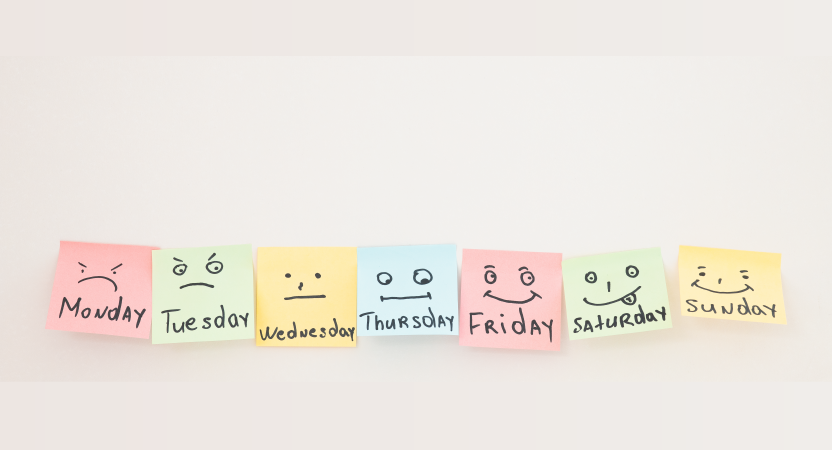Mental health is a pivotal aspect of our overall well-being, influencing how we think, feel, and act. It plays a crucial role in handling stress, relating to others, and making decisions. This article delves into the power of mental health, illustrating how it can transform your life and offering practical guidance on managing mental well-being.
Introduction
In today's fast-paced world, maintaining good mental health is more important than ever. Stress, anxiety, and depression are common issues that many people face. However, with the right strategies and resources, you can significantly improve your mental well-being. This comprehensive guide will explore various aspects of mental health, including stress management techniques, the benefits of therapy, and how to find the right therapist for you.
Understanding Mental Health
Mental health encompasses our emotional, psychological, and social well-being. It affects how we think, feel, and act, making it a critical component of a fulfilling life. Good mental health is not just the absence of mental disorders; it's about having the tools to manage stress, maintain relationships, and make sound decisions.
Stress Management Techniques
Stress is an inevitable part of life, but effective stress management techniques can help you handle it more gracefully. Here are some practical tips for managing stress:
- Exercise Regularly: Physical activity releases endorphins, which are natural mood lifters. Aim for at least 30 minutes of exercise most days.
- Practice Mindfulness: Mindfulness exercises for beginners, such as deep breathing and meditation, can help you stay grounded and reduce stress.
- Prioritize Sleep: Quality sleep is essential for mental health. Establish a regular sleep routine and create a restful environment.
- Stay Connected: Talking to friends or family can provide emotional support and help you manage stress better.
- Organize Your Time: Effective time management can reduce stress by helping you feel more in control of your day.
Self-Care for Mental Well-Being
Self-care is the practice of taking action to preserve or improve one's own health. Here are some self-care strategies to enhance your mental well-being:
- Healthy Eating: A balanced diet can improve your mood and energy levels. Incorporate plenty of fruits, vegetables, and whole grains into your meals.
- Regular Physical Activity: Exercise is a powerful tool for enhancing mental health. It can help reduce symptoms of anxiety and depression.
- Relaxation Techniques: Engage in activities that relax you, such as reading, listening to music, or taking a bath.
- Set Boundaries: Learn to say no to activities that drain your energy and time.
- Pursue Hobbies: Engage in activities that bring you joy and relaxation.
The Benefits of Therapy
Therapy can be a transformative experience for individuals struggling with mental health issues. Here are some benefits of therapy:
- Professional Support: Therapists are trained to help you navigate mental health challenges and develop coping strategies.
- Safe Space: Therapy provides a confidential environment where you can express your thoughts and feelings without judgment.
- Personal Growth: Therapy can help you gain insights into your behavior and thought patterns, leading to personal growth and improved mental health.
Online Therapy Options
With the rise of technology, online therapy options have become more accessible. Here are some benefits of online therapy:
- Convenience: You can access therapy from the comfort of your home, making it easier to fit into your schedule.
- Accessibility: Online therapy can be particularly beneficial for individuals in remote areas or those with mobility issues.
- Anonymity: Some people may feel more comfortable discussing sensitive issues online rather than in person.
Mental Health Resources
Numerous mental health resources are available to support you on your journey to better mental well-being. These resources include:
- Hotlines: Mental health hotlines provide immediate support and guidance during a crisis.
- Support Groups: Joining a support group can help you connect with others facing similar challenges.
- Educational Materials: Books, articles, and online courses can provide valuable information about mental health.
How to Talk to Someone About Mental Health
Discussing mental health can be challenging, but it's an essential step toward getting the support you need. Here are some tips on how to talk to someone about mental health:
- Choose the Right Time and Place: Find a quiet, comfortable setting where you can have a private conversation.
- Be Honest and Open: Share your feelings and experiences honestly. Use "I" statements to express how you feel.
- Listen Actively: Give the other person your full attention and listen without interrupting.
- Seek Professional Help Together: If the conversation is difficult, consider seeking the help of a therapist to facilitate the discussion.
How to Improve Mental Well-Being
Improving your mental well-being involves making positive changes in your lifestyle and mindset. Here are some strategies to help you improve your mental health:
- Set Realistic Goals: Establish achievable goals that give you a sense of purpose and accomplishment.
- Practice Gratitude: Focus on the positive aspects of your life by keeping a gratitude journal.
- Stay Active: Regular physical activity can boost your mood and reduce symptoms of anxiety and depression.
- Connect with Others: Building strong relationships with friends and family can provide emotional support.
- Seek Professional Help: If you're struggling with mental health issues, don't hesitate to seek help from a therapist or counselor.
Tips for Managing Stress
Managing stress is crucial for maintaining good mental health. Here are some additional tips for managing stress:
- Identify Stress Triggers: Recognize what causes your stress and find ways to avoid or manage these triggers.
- Stay Organized: Keeping your living and work spaces organized can help reduce stress and improve productivity.
- Practice Relaxation Techniques: Techniques such as yoga, tai chi, and deep breathing can help you relax and reduce stress.
- Take Breaks: Give yourself regular breaks throughout the day to rest and recharge.
- Stay Positive: Maintain a positive outlook by focusing on your strengths and accomplishments.
Signs of Anxiety
Anxiety is a common mental health issue that can significantly impact your life. Here are some signs of anxiety to look out for:
- Excessive Worrying: Constantly worrying about everyday situations can be a sign of anxiety.
- Restlessness: Feeling restless or on edge is a common symptom of anxiety.
- Fatigue: Anxiety can cause physical and mental exhaustion.
- Difficulty Concentrating: Anxiety can make it hard to focus on tasks.
- Irritability: Feeling easily irritated or frustrated is another sign of anxiety.
How to Cope with Depression
Depression is a serious mental health condition that requires attention and care. Here are some strategies to help you cope with depression:
- Seek Professional Help: A therapist or counselor can provide support and guidance in managing depression.
- Stay Active: Regular exercise can help improve your mood and energy levels.
- Engage in Hobbies: Doing activities you enjoy can provide a sense of accomplishment and pleasure.
- Connect with Others: Talking to friends and family can provide emotional support.
- Practice Self-Compassion: Be kind to yourself and avoid negative self-talk.
Mindfulness Exercises for Beginners
Mindfulness exercises can help you stay present and reduce stress. Here are some simple mindfulness exercises for beginners:
- Deep Breathing: Focus on your breath and take slow, deep breaths.
- Body Scan: Pay attention to different parts of your body, starting from your toes and moving up to your head.
- Mindful Walking: Walk slowly and pay attention to the sensations in your feet and legs.
- Mindful Eating: Focus on the taste, texture, and smell of your food while eating.
How to Find a Therapist
Finding the right therapist can make a significant difference in your mental health journey. Here are some tips on how to find a therapist:
- Ask for Recommendations: Seek recommendations from friends, family, or your primary care physician.
- Research Online: Use online directories and review sites to find therapists in your area.
- Check Credentials: Ensure the therapist is licensed and has the appropriate credentials.
- Schedule a Consultation: Meet with potential therapists to see if they are a good fit for you.
- Consider Your Needs: Look for a therapist who specializes in the areas you need help with, such as anxiety, depression, or stress management.
Conclusion
Mental health is a crucial aspect of our overall well-being, affecting every part of our lives. By prioritizing mental health through stress management techniques, self-care, and therapy, you can significantly improve your quality of life. Remember that seeking help is a sign of strength, and numerous resources are available to support you on your mental health journey.
FAQs
- What are some effective stress management techniques? Effective stress management techniques include regular exercise, relaxation techniques such as deep breathing and meditation, maintaining a healthy lifestyle, and practicing good time management.
- How can I improve my mental well-being? Improving mental well-being involves self-care practices, seeking therapy if needed, engaging in hobbies, maintaining social connections, and practicing mindfulness.
- What are the signs of anxiety? Common signs of anxiety include persistent worry, restlessness, physical symptoms like headaches and muscle tension, and avoidance of anxiety-inducing situations.
- How can I cope with depression? Coping with depression involves seeking professional help, building a support network, engaging in physical activity, and practicing self-care.
- How can I find a therapist? To find a therapist, research licensed professionals, schedule initial consultations to find a good fit, and ask for recommendations from trusted sources.


